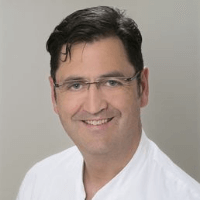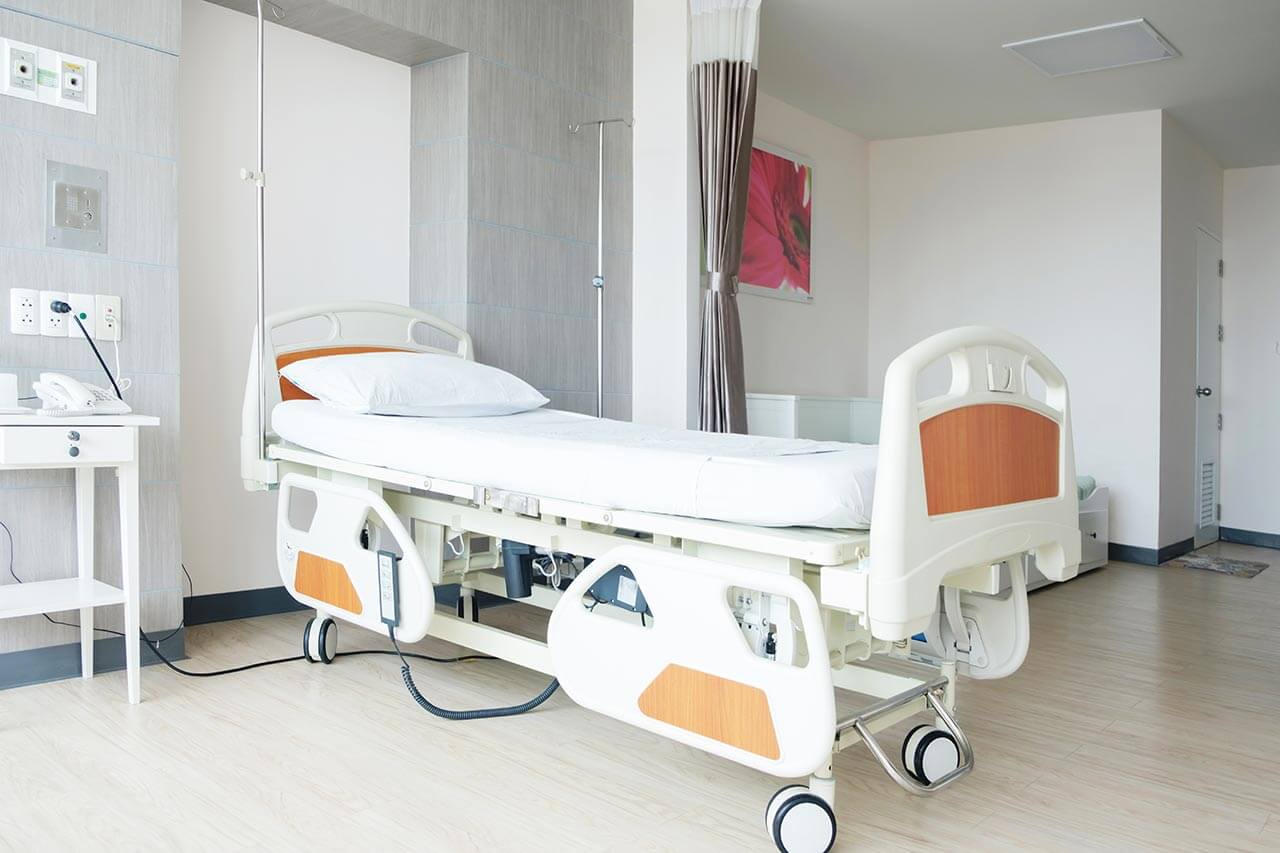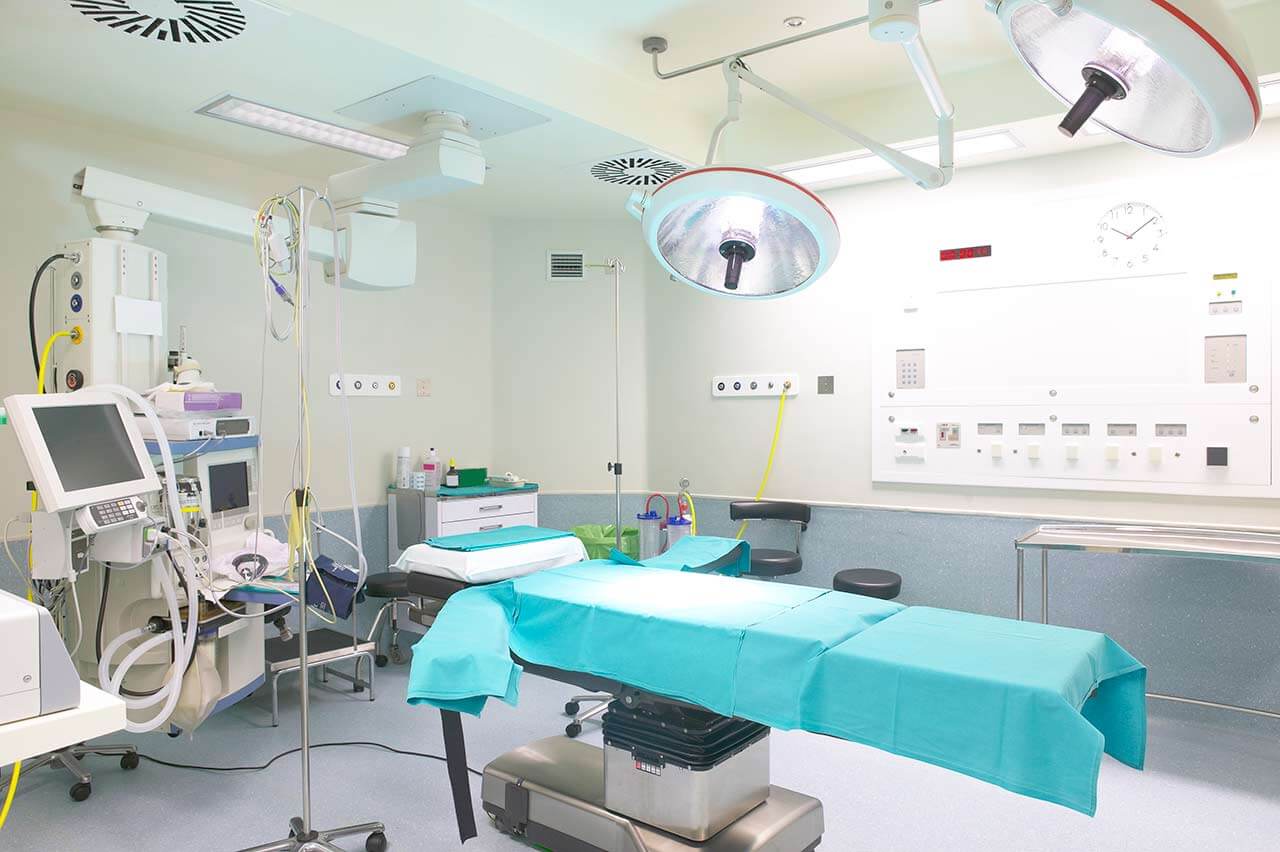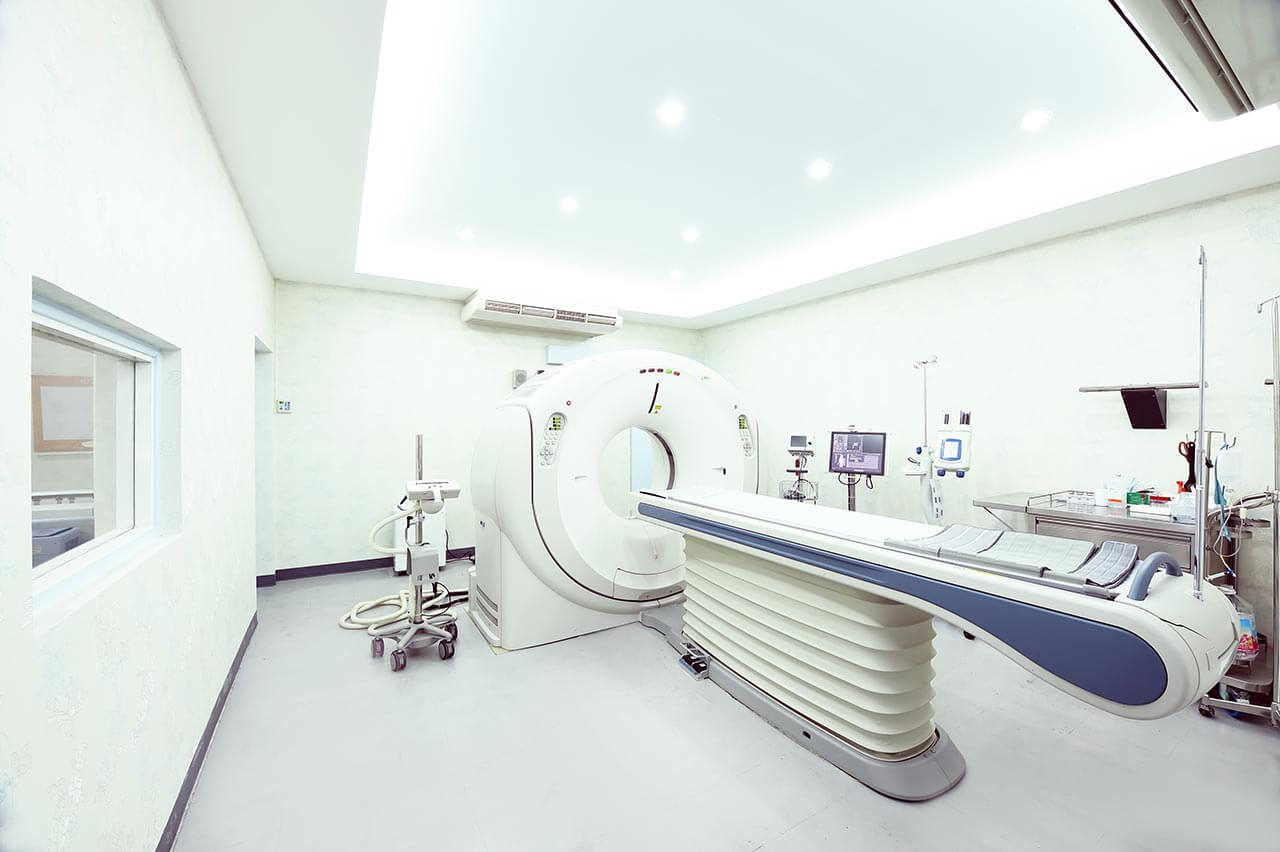
The program includes:
- Initial presentation in the clinic
- clinical history taking
- physical examination
- review of medical records
- laboratory tests:
- complete blood count
- general urine analysis
- biochemical analysis of blood
- TSH-basal, fT3, fT4
- tumor markers
- indicators of inflammation
- indicators blood coagulation
- CT/MRI of the abdomen and chest
- ultrasound/ X-ray examination
- conduct endosonography of bronchi
- bronchoscopy with biopsy of bronchi and lungs
- gistological/ cystological research
- preoperative care
- extended pneumonectomy
- histologically and immunohistochemically examination
of the remote tissues - symptomatic treatment
- control examinations
- the cost of essential medicines and materials
- nursing services
- full hospital accommodation
- explanation of future recommendations
Required documents
- Medical records
- MRI/CT scan (not older than 3 months)
- Biopsy results (if available)
Service
You may also book:
 BookingHealth Price from:
BookingHealth Price from:
About the department
The Department of General, Abdominal, Colorectal, Endocrine, Thoracic and Bariatric Surgery at the St. Antonius Hospital Eschweiler offers the full range of diagnostic and therapeutic services in the areas of its competence. A highly qualified team of the department's surgeons performs surgical procedures on the gastrointestinal organs, thyroid gland, adrenal glands, lungs and other thoracic organs, as well as hernia repair procedures. Of particular interest to the doctors of the medical facility is the surgical treatment of stomach and colon malignancies. The department's surgeons cooperate closely with gastroenterologists, oncologists and doctors from other related specialties, which guarantees comprehensive approach and high treatment efficiency. The department also focuses on patients with proctological diseases, including hemorrhoids, anal fistulas, anorectal abscesses and fecal incontinence. The department has the status of the Center of Competence for Bariatric Surgery and successfully performs modern weight loss surgery in patients suffering from morbid obesity. The department's operating rooms are equipped with state-of-the-art technology, while most of the interventions are performed using sparing minimally invasive techniques. The use of minimally invasive surgery has a number of benefits, while its efficiency is not inferior to classic open surgery associated with numerous risks to human health. The Chief Physician of the department is Dr. med. Mario Dellanna.
The primary focus of the department's clinical activities is the surgical treatment of malignant tumors of the stomach, colon, rectum, as well as the surgical resection of benign and malignant liver tumors. Cancer patients require interdisciplinary medical care, so the department's surgeons cooperate closely with oncologists. During the tumor boards, doctors consider each clinical case and thoroughly think over each stage of the subsequent treatment. The department's surgeons are responsible for the surgical removal of a malignant tumor or even a part of an organ affected by the oncological process. With the advanced medical and technical equipment, the specialists of the medical facility can perform most surgical procedures using minimally invasive techniques, which allows the patient to quickly recover from surgery, avoid serious postoperative risks and severe pain. Once the tumor has been removed, the patient will be additionally appointed chemotherapy, radiation therapy, immunotherapy, antibody therapy and other types of treatment. The specific complex of therapeutic measures is determined individually, based on the patient's diagnosis and clinical indications In some cases, chemotherapy can be carried out prior to surgery as well.
The department's surgeons specialize in the surgical treatment of gastroesophageal reflux disease. The disease develops with pathological reflux of gastric contents into the esophagus due to the dysfunction of the lower esophageal sphincter. The surgeons and gastroenterologists jointly study diagnostic results, after which they make a decision on the most effective type of treatment. Obviously, the specialists always give preference to conservative therapy (drug therapy), while interventional treatment is the last-line therapy. However, in some cases, surgery is unavoidable. A great advantage for the department's patients is the vast experience of surgeons in Nissen fundoplication – the most effective surgical intervention for gastroesophageal reflux disease. The operation is performed using minimally invasive surgical techniques. The essence of the operation is that the surgeon wraps the gastric fundus around the esophagus, thereby creating a cuff that prevents reflux of gastric contents into the esophagus. The intervention increases the pressure in the lower esophageal sphincter, which prevents the reflux process. Thanks to the use of sparing surgical techniques, the risks of postoperative complications are minimal.
The department's medical team is also proud of its successful results in hernia repair surgery: inguinal hernias, epigastric hernias, umbilical hernias, incisional and diaphragmatic hernias. The department's services range is complemented by surgical procedures on the liver, biliary tract, thyroid, spleen, lungs, thoracic organs and soft tissues. The surgeons of the medical facility also perform interventions to implant catheter systems for dialysis.
It is worth noting that the department includes a specialized Center of Competence for Bariatric Surgery, which performs surgical procedures for morbid obesity treatment. Weight loss in case of morbid obesity is possible only with the help of a carefully developed comprehensive treatment regimen, and therefore the patients receive medical care not only from bariatric surgeons, but also from therapists, nutritionists, physiotherapists, plastic surgeons, behavioral therapists and other specialists. Prior to a bariatric intervention, the specialists carefully assess all the pros and cons of such treatment. The operation is prescribed only if it is the only effective method of treatment for a particular patient. The department's doctors specialize in gastric banding, gastric bypass surgery and intragastric balloon placement. Whenever required, surgeons also perform plastic surgery to repair the shape of the body after rapid weight loss (body lift). The surgical treatment is complemented by an individually developed diet and regular physical exercises.
The department's range of surgical services includes:
- General and abdominal surgery
- Surgical interventions for benign and malignant stomach diseases
- Surgical interventions for benign and malignant bowel diseases
- Surgical interventions for rectal cancer
- Surgical interventions for benign and malignant liver diseases
- Surgical interventions for benign and malignant diseases of the gallbladder and biliary tract
- Surgical interventions for benign and malignant spleen diseases
- Surgical interventions for gastroesophageal reflux disease (Nissen fundoplication)
- Surgical interventions for hernias
- Surgical interventions for pathological lesions of soft tissues
- Surgical interventions for catheter placement for dialysis
- Colorectal surgery
- Surgical interventions for hemorrhoids (stapled hemorrhoidopexy, open surgery)
- Surgical interventions for fecal incontinence (placement of a special stimulator)
- Surgical interventions for rectal prolapse
- Surgical interventions for obstructive defecation syndrome
- Surgical interventions for rectal tumor removal (minimally invasive)
- Surgical interventions for anorectal abscesses
- Surgical interventions for genital warts
- Surgical interventions for anal fistulas
- Endocrine surgery
- Surgical interventions for nodular goiter
- Surgical interventions for thyroid cancer
- Thoracic surgery
- Surgical interventions for lung diseases
- Surgical interventions for diseases of other thoracic organs
- Bariatric surgery
- Gastric banding
- Gastric bypass surgery
- Intragastric balloon placement
- Other surgical options
Photo of the doctor: (c) St.-Antonius-Hospital
About hospital
According to the prestigious Focus magazine, the St. Antonius Hospital Eschweiler ranks among the top medical facilities in North Rhine-Westphalia!
The hospital is a modern medical complex with 13 specialized departments. The hospital has more than 165 years of history, so it has long won an excellent reputation not only in Germany, but also in the European medical arena. In addition, the medical facility has the status of the Academic Hospital of the RWTH Aachen University, thanks to which it can offer patients the very latest and unique medical advances. The highly qualified medical staff of the hospital, consisting of more than 1,300 employees, is focused on high-quality medical services with due consideration of the personal needs and wishes of patients
The medical complex has 443 beds. More than 15,000 inpatients undergo diagnostics and treatment on an inpatient basis, while about 25,000 patients receive ambulatory medical care. The specialists of the hospital often provide diagnostic services and treatment to the patients from foreign countries.
The main areas of clinical practice of the medical facility include oncology, hematology, general and abdominal surgery, plastic surgery, hand surgery, vascular surgery, internal medicine, gynecology, urology and radiation oncology. Each area is represented by an experienced team of doctors and specially trained nursing staff, whose task is to provide the accurate diagnostics and the most effective treatment. The work of the medical staff is based on the use of modern technical resources, as well as classic and innovative treatment methods. The doctors from different medical specialties cooperate closely with each other, so the slightest details and characteristics of the patient's body are taken into account when planning and providing treatment. In addition, the medical staff is always open to personal communication with the patients, strives for their moral support on their way to recovery and surrounds them with care.
The outstanding achievements of the hospital and high treatment success rates are confirmed by the quality certificates of the German Cancer Society, the German Cardiac Society, the German Society of Vascular Surgery, the German Society of Hematology and Medical Oncology and the German Trauma Society. In addition, according to the famous Focus magazine, the hospital is recognized as one of the best medical centers in Germany specializing in the treatment of breast cancer, prostate cancer and cardiovascular diseases.
Photo: (с) depositphotos
Accommodation in hospital
Patients rooms
The patients of the St. Antonius Hospital Eschweiler live in cozy and light rooms. All the patient rooms are well equipped to make the patient feel as comfortable as possible throughout the entire period of hospital stay. The patient room includes an automatically adjustable bed, a bedside table, a wardrobe, a TV and a telephone. Each patient room has an ensuite bathroom with shower and toilet. Some patient rooms have specially designed bathrooms for disabled people. The patient rooms also have Wi-Fi.
If desired, the patient with his accompanying person can live in the enhanced comfort room. These patient rooms are additionally equipped with upholstered furniture, a mini fridge and a safe for storing valuables.
Meals and Menus
The patient and his accompanying person are offered tasty and healthy three meals a day: breakfast, lunch and dinner. Breakfast and dinner are served buffet style, while for lunch there is a choice of three set menus. If for some reason you do not eat all the foods, you will be offered an individual menu.
The hospital also has a cozy cafe with a large choice of salads, main courses, pizza, cakes and ice cream. Here you can enjoy aromatic coffee, delicious tea or soft drinks.
Further details
Standard rooms include:
Religion
The religious services are available upon request.
Accompanying person
During the inpatient program, the accompanying person can live with the patient in a patient room or a hotel of his choice. Our managers will help you choose the most suitable option.
Hotel
During the outpatient program, the patient can stay at the hotel of his choice. Our managers will help you choose the most suitable option.




